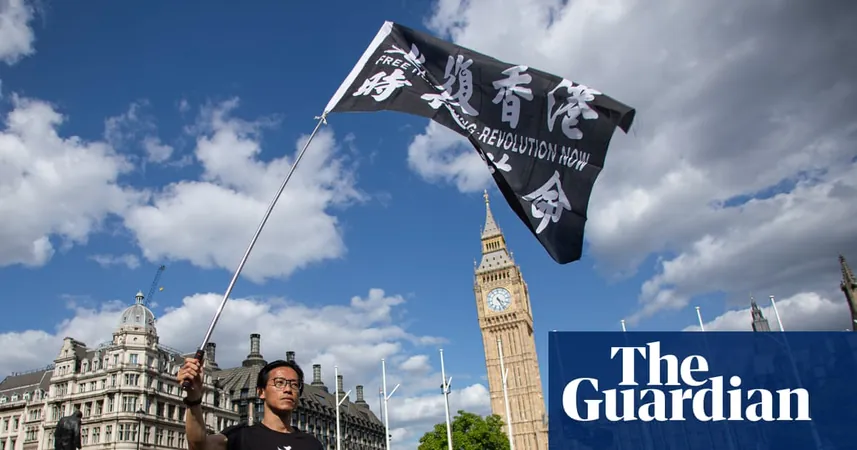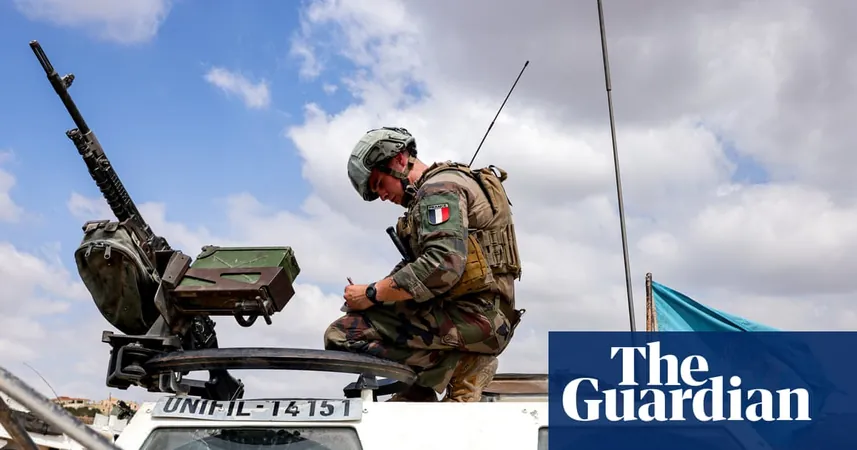
Hong Kong Issues Arrest Warrants for 19 Overseas Activists: The Controversial Crackdown Intensifies!
2025-07-26
Author: Sophie
In a dramatic escalation of its ongoing crackdown on dissent, Hong Kong's national security police have unveiled arrest warrants for 19 activists residing abroad, accusing them of subversion under the controversial national security law. This marks the largest number of such warrants to date.
These activists are alleged to have been key figures in organizing or participating in the so-called 'Hong Kong Parliament,' a pro-democracy entity that authorities claim sought to undermine the state’s power. This law, imposed by Beijing in 2020, followed mass pro-democracy demonstrations in 2019, and has since been wielded to target political opposition.
The group faces severe accusations—launching referendums and running as candidates within this unofficial parliament, which officials assert promotes self-determination and the drafting of a new constitution for Hong Kong.
The police accused this organization of attempting to topple both the Chinese and Hong Kong governments through unlawful methods, hinting that further arrests could soon follow.
Among the high-profile figures named in the warrants are businessman Elmer Yuen, political commentator Victor Ho, and activists Johnny Fok and Tony Choi. Notably, four of these individuals already have outstanding arrest warrants, each linked to a bounty of 1 million Hong Kong dollars (approximately $125,000). Meanwhile, the other 15 individuals face rewards of 200,000 Hong Kong dollars for information leading to their capture.
Feng Chongyi, a professor of China studies at the University of Technology Sydney and one of those named, condemned the government’s move as ‘ridiculous.’ He stated, 'They’ve got the power, they’ve got the influence overseas, they want to control everything even from abroad.'
The arrest warrants have drawn sharp criticism from international leaders, particularly from the UK, whose foreign and home secretaries called this action 'another example of transnational repression.' They emphasized that such measures damage Hong Kong’s international standing and vowed their commitment to protecting critics of foreign governments.
In response to the UK's comments, the Chinese embassy in London accused the British government of gross interference in China’s internal matters, urging it to abandon its 'colonial mentality' and cease its criticism.
Australia’s foreign minister, Penny Wong, also expressed strong disapproval, reiterating that freedom of expression and assembly are fundamental to democracy. She underscored Australia’s steadfast opposition to the extraterritorial application of Hong Kong's national security legislation.
Since its return to Chinese sovereignty in 1997, under the principle of 'one country, two systems,' Hong Kong was promised a high degree of autonomy, including freedom of speech. However, many critics now argue that the national security law serves as a tool to suppress dissent.
Authorities have insisted that national security offenses constitute serious crimes with global implications, urging the wanted activists to return to Hong Kong and surrender. They offered leniency for those who voluntarily confess or provide critical information about other cases.
Moreover, the police warned that facilitating or funding participation in the Hong Kong Parliament group could also lead to prosecution, emphasizing the extent of their crackdown.









 Brasil (PT)
Brasil (PT)
 Canada (EN)
Canada (EN)
 Chile (ES)
Chile (ES)
 Česko (CS)
Česko (CS)
 대한민국 (KO)
대한민국 (KO)
 España (ES)
España (ES)
 France (FR)
France (FR)
 Hong Kong (EN)
Hong Kong (EN)
 Italia (IT)
Italia (IT)
 日本 (JA)
日本 (JA)
 Magyarország (HU)
Magyarország (HU)
 Norge (NO)
Norge (NO)
 Polska (PL)
Polska (PL)
 Schweiz (DE)
Schweiz (DE)
 Singapore (EN)
Singapore (EN)
 Sverige (SV)
Sverige (SV)
 Suomi (FI)
Suomi (FI)
 Türkiye (TR)
Türkiye (TR)
 الإمارات العربية المتحدة (AR)
الإمارات العربية المتحدة (AR)